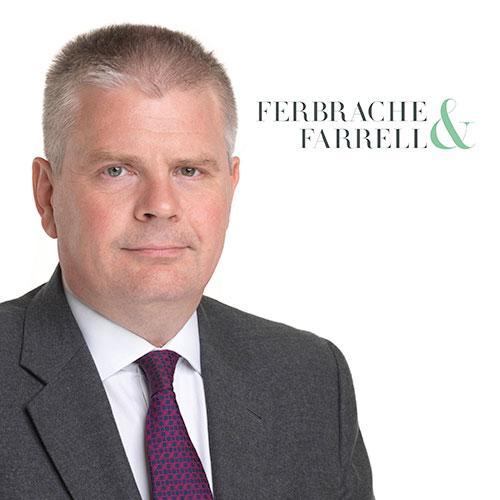What’s the main change you’ve made in the firm that will benefit clients?
We have tried to change and adapt to the constant evolution of technology, whilst maintaining our traditional partnership ethos (based on the collective of all our individual members of our team of just under 20 people). Those changes have seen us adopt logistical support and communications, a new IT structure and platform, a cloud-based environment whilst ensuring that clients do not feel institutionalised or corporatised in a sanitised environment. In addition, whilst we have doubled in size in the last three years, this change has not been at the expense of our collegiate and client-focused culture.
What does innovation mean to you and how can firms be better at it?
Innovation covers both the type of work that we do and the way in which we do it. Innovation has a direct impact in the type of corporate and commercial work that we do since structures are being set up both in an innovative manner and to deal with new asset classes (from ICO, crypto currencies to tech companies etc.). Innovation also affects our infrastructure which requires an understanding of evolving technology since our clients will expect us to be up-to-date and to deliver to them in a way which is commensurate to their requirements and own infrastructure.
What are the biggest challenges facing firms in the offshore world?
In addition to the macro economic situation the whole world is facing, the biggest challenge we face is politics, in that there is a perception that the offshore world is still a shady place consisting of tax havens and palm trees where money is secretly stashed away by bad people. This is untrue and particularly unfair since Guernsey adheres to all (and at times more than) the international standards to ensure that we are fully tax transparent and only deal with legitimate business. There is also an increased degree of competition from onshore jurisdictions who, whilst criticising us, are trying to provide solutions that are traditionally provided for by the offshore world.
How does your firm handle technology and data security? Has this become even more important following recent law firms hacks?
As a smaller, but nimble, boutique law firm, we as partners and staff are not burdened by a heavy infrastructure and are therefore a lot more agile to know, understand, and deal on a time critical basis with any client issues relating to technology and data security. In addition, some of our partners who advise professionally on legal issues surrounding data protection and technology have been rightfully appointed as the persons leading the projects and the oversight. We apply the highest standards of cybersecurity and ensure that any issue is dealt with effectively as a team effort.
What is your firm’s approach to competition between offshore jurisdictions?
We are (and possibly are the only) commercially led full-service boutique law firm which is solely Guernsey owned and based. To that extent, we are not jurisdictionally agnostic and our first approach is always to try and provide Guernsey as the first choice or preferred solution to our clients’ needs.
If Guernsey is not the most appropriate jurisdiction, we then suggest the partners we work with in the other offshore jurisdictions.
What do you do differently from other offshore firms?
As mentioned above, we believe we are different since we are the only boutique commercially led practice in Guernsey with partnered relationships in other major offshore jurisdictions. Whilst we are fiercely and unashamedly proud of being an independent Guernsey practice we can provide a seamless level of services across more than one jurisdiction. Where we also differ is the traditional partnership culture as led by our founding partners operating within a flat team structure and maintaining close relationships with clients. We thrive on becoming trusted advisors to clients on both the professional and personal levels. We also operate on a minimal infrastructure which means that our fees do not include a disproportionate and unnecessary high level of costs to be recovered from clients.
What have you found is the best way to recruit and retain talent?
As a start-up, which is now soon to be three-years old, we have had a blank sheet of paper and can only develop as a practice. The best way to recruit and to retain talent is to offer a growth potential for people to thrive in their independent capacity within our team structure. All members of our practice are intricately linked to the success, growth, development, and future of this newly established practice.
What should young lawyers know about working offshore, compared to onshore?
Traditionally, offshore lawyers would tend to need a good mixture of general practice, as well as a high level of expertise in certain specified areas. What an onshore lawyer cannot expect when coming to Guernsey is to be highly specialised in one narrow field. What an onshore lawyer can expect is a very good combination of varied corporate, commercial, asset management, and banking work dealing with a high variety of clients, either directly or through onshore instructing counsel. In addition, the level of involvement and client interaction is possibly greater at a more junior level than that usually afforded to onshore lawyers.
What has been your greatest achievement, in a professional and personal capability?
I believe my greatest achievement, mixing both my professional and personal capability, was the establishment with three like-minded friends of our practice three-years ago. We believe our practice mixes our individual characteristics together with professional aptitude, therefore, retaining a high level of services within a family minded partnership environment.
